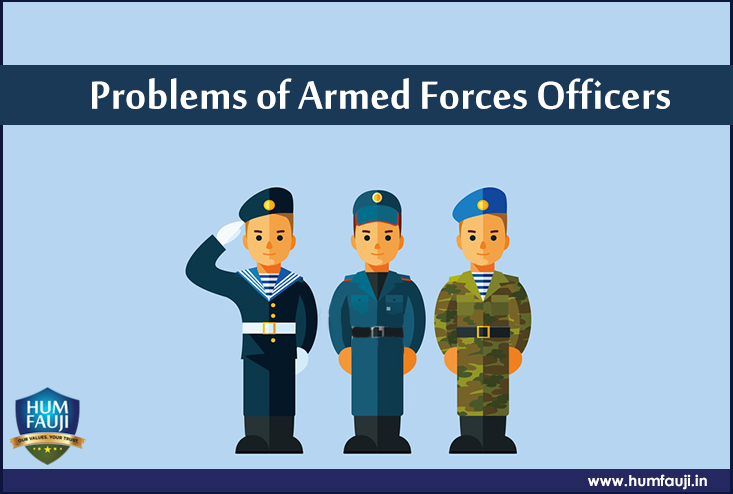The concept of emergency fund explained by Pranav the previous day was easy to understand for both Rajesh and AK. They also realised that it is important to have a buffer in own hands at all times since bad times wait for none. They were also well aware about their own situation that they might not struggle with emergency expenses, given the fact that they would get a substantial amount as retirement corpus now which can be suitably apportioned. As for day-to-day expenses, they were sure that their government pension would look after them nicely since they already had their own houses to stay and didn’t have any notions of shifting over to any outlandish lifestyle
However, this new knowledge gave them a reason to start worrying about their children and their families. Their kids were now grown up, and had families of their own to take care of. In their private sector jobs, they did not have the kind of job security and healthcare benefits like the defence personnel did. So, emergencies – health related or money related – had to be carefully planned for. The importance of Emergency Fund for them seemed to be the need of the hour urgently. They also started thinking about the ways in which various types of contingency situations can be dealt with, and put the same question to Pranav the next morning.
“There is only one way of covering your back for the unforeseen risks – insurance,” he said, adding, “we are blessed to have our institutional support for health care in the form of ECHS. But make sure your kids and their families, who are not in the forces, get their own health insurance in place,” he said.
“What about Life Insurance. Is it advisable for us or for others?” asked AK.
“Certainly,” Pranav said. “Life Insurance, and only Term Insurance mind you, is definitely advisable for anyone who has some dependents or liabilities and the assets do not cover it. Do you, in particular, need it? I doubt. We are about to retire in a few weeks. We don’t have any major liability like a large home loan to pay-off or big expensive education for our children. Our kids are all almost settled. Our wives can still survive quite well with the pension even if we depart in a hurry. But for anybody, who has big liabilities right now or coming up and not enough assets to cover it, should definitely take adequate life insurance,” he explained.
“But don’t we all already have an extended Life Insurance from the Government when we retire? And what is this new animal, Term Insurance, you just now mentioned?” Rajesh was curious.
“Yes, we do get a small insurance cover, typically of Rs 10 Lakhs, till about 75 years of age. Actually, for somebody who needs insurance, this is a very small sum and for somebody who doesn’t need it, it is unnecessary. However, the more important part here is not you but your children who definitely need life insurance. The best way is to do an analysis and see how much of their future requirements need to be covered. A broad thumb rule is to have a life insurance equal to 7-10 times your current gross salary. But a still better way is to cover about 7-10 times your current yearly household expenses, plus future requirements like children’s education, add your current loans and liabilities to it, and subtract the assets (money in bank accounts, investments etc) from it. That should give you a fair idea of the cover to take”, said Pranav.
He further continued, “And which insurance to take? Every insurance company has Term Plans which is the simplest and cheapest form of insurance without any frills. That is the only life insurance anybody should really take. Even for an insurance cover as high as say, Rs 1 crores, the premium could be just about Rs 9000 per year for your children”.
Rajesh was very relieved, “That means I do not have to bother about any insurance at all. That’s good because I don’t like those discussions about what will my family get if I die!”
Pranav and AK had a hearty laugh on this observation by Rajesh
AK asked Pranav, “So this is all about insurance that we have to bother about?”
“Oh No! Insurance is not only about covering your life. In fact, insurance touches a large part of your life. You both, and of course me too, certainly need our car insurance. But one insurance cover we all generally miss out on is the home insurance. A house is our most precious possession but we neglect to cover it against exigencies like fire, earthquake, floods etc. We also do not bother to cover our valuables against theft, breakages and such like eventualities. Do you know that for very small amounts, you can get your house and its valuables covered comprehensively? And you can do that for as long periods as even 10 years at a time,” said Pranav very passionately.
He also explained about critical illness and disability insurance policies that can be immensely helpful if a person is later diagnosed with illnesses like cancer, severe heart ailments or suffers disability due to accidents etc. He further told them that while they, after retirement, would be well covered under ECHS, in conditions like critical illness and disabilities, there are large number of expenses like a servant, health supplements, doctors’ second opinion etc which may not be adequately covered through ECHS.
AK was already aware about another type of insurance – the travel insurance. “Yeah, I remember my daughter asked me to get travel insurance when we visited her when she was studying abroad,” he said.
“How does it work?” asked Rajesh.
“Basically, it covers the potential losses while travelling. For example, if your luggage is lost or delayed, or if you fall ill while being abroad, then this insurance kicks in to your rescue. You know treatment abroad could be very expensive,” AK explained.
“That’s right. It becomes important when you are travelling, particularly while travelling abroad. But make sure you cover the basic insurances first, for yourself and for your families,” Pranav said.
“Once you are done with the basics, you can always enhance your insurance coverage. These days, insurance policies are also available even to cover your cyber risks, like getting scammed online which results in a loss for you!” he added.
Rajesh finally seemed to have got today’s lessons well. He parted the company saying, “I really did not realise that there are so many types of insurances, and more importantly, they could really save from a lot of trouble if you’ve taken them right. Actually, any of these things like fire, robbery or problems while travelling happening to could really wipe out your life-time savings! Thanks Pranav for all this gyan. Really grateful.”
Gyan Collected
- Insurance is the financial product wherein your life’s risks are passed on to an insurance company for a small premium paid by you.
- If own life’s risks are not correctly assessed and covered, they have a large potential to affect your and your loved ones’ lives negatively.
- There is an insurance cover available for every adverse happening in one’s life. Visualise it, correctly assess it and immediately act on it without waiting for the calamity to happen.
- While a retiring officer has a good corpus and medical facilities available to him/her and the spouse, their children may not have these. The children should be made aware of this and the vulnerability covered.













Leave a Reply